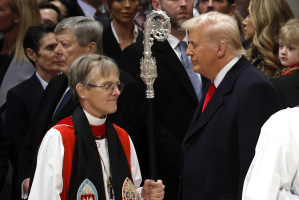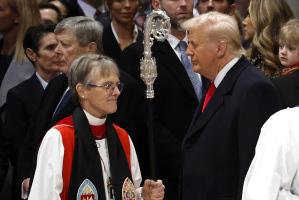Egypt Election Results Still Unknown, Critics Fear Move to Islamic Fundamentalism
Election officials reported 62 percent of Egyptians voted in Monday and Tuesday’s election for the lower houses of parliament; although, no official results have been released.
As it stands, two parties, Salafi Noor and the Muslim Brotherhood, are expected to win a majority of seats in the new government. Both parties are powerful entities in Egypt. A win by either party would mean sweeping changes.
The Salafi Noor party emerged after President Hosni Mubarak was ousted in February. The group is inspired by the teachings of the Quran and is considered an ultra-conservative Islamic group, following the principles of Shariah law.
“In the land of Islam, I can't let people decide what is permissible or what is prohibited. It's God who gives the answers as to what is right and what is wrong,” said Noor spokesperson Yousseri Hamad.
Shariah law is responsible for such punishments as flogging, amputation, exile, stoning, and execution. Honor killing-murder in the name of restoring honor to a family, has become an international problem, specifically for young Muslim women.
Regional experts have said that Egyptians’ lives would drastically change should the Noor party takes power. Many commentators insisted that instead of moving towards a democracy, which was the original goal of the uprising and overthrow of Mubarak, the country would move into a stricter Islamist regime led in the name of religion and that religious freedom in the country could become further repressed.
The party of the Muslim Brotherhood is considered more moderate. It was founded in 1928 and it has been a powerful presence in the state. The Brotherhood’s website explains the goal of having a “non-military, non-religious state.”
Many observers have stated their beliefs that the Brotherhood harbors an anti-Western and totalitarian agenda, even though it embraces moderation and democracy in public.
There is a general trend of Islamist regimes winning elections in the region, according to CNN, with moderate Islamists also winning elections in Morocco and Tunisia, as well as Turkey.
Hassan Nafaa, professor of political science at the University of Cairo, offered his opinion to the Al-Shorouq paper.
“The fear is that if the Islamist forces dominate the new parliament, that could lead to an undemocratic system, and one that is authoritarian in the name of religion,” said the professor.
Though there is speculation about the Brotherhood and Noor working together, although, the Brotherhood’s website adamantly refutes this.
“The FJP [Brotherhood’s political party] is currently fully focused on the ongoing electoral process, and any talks about alliances are premature and mere media speculation,” said the website.
Election results are still unknown, as is the future of Egypt.





























